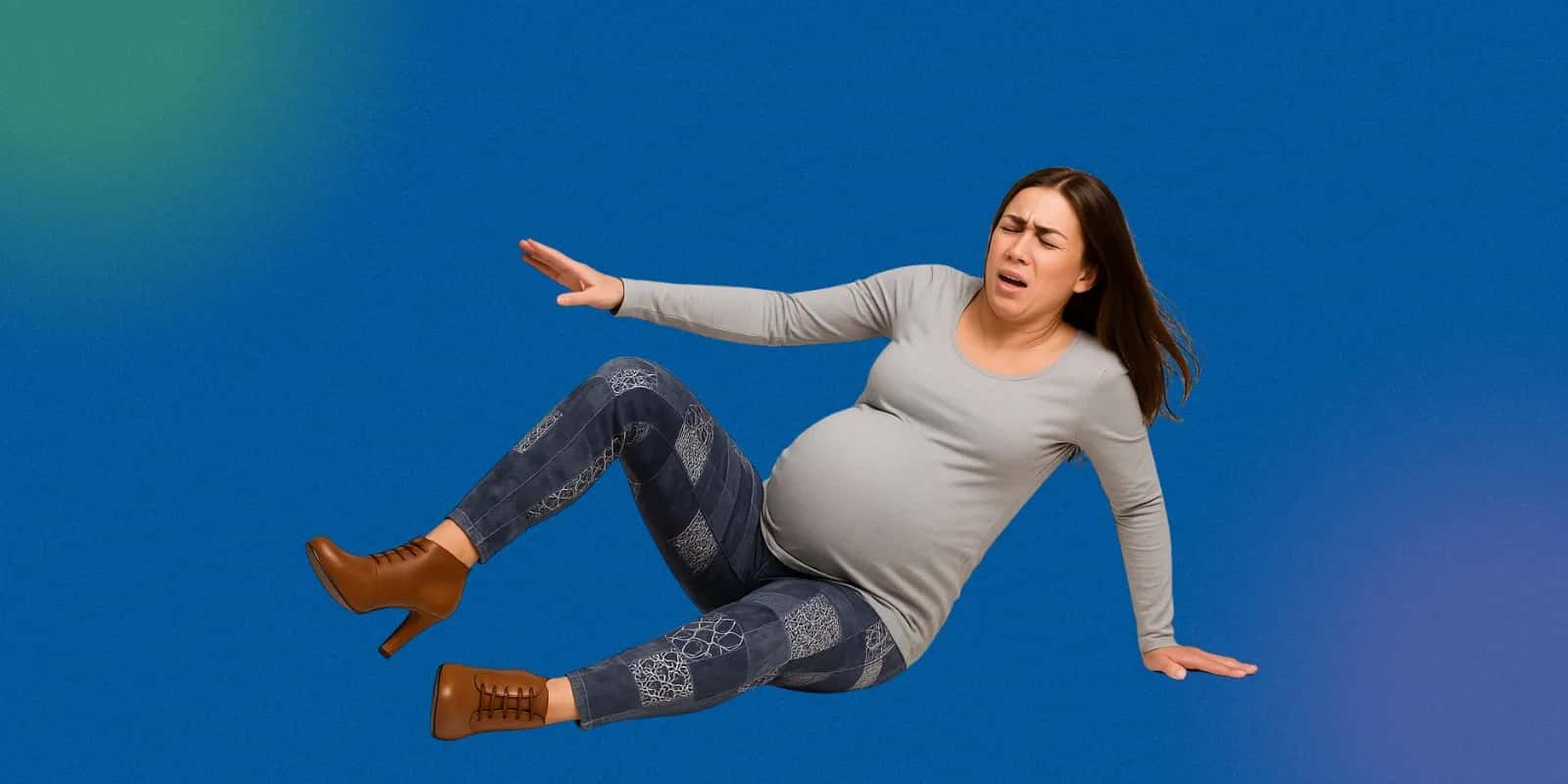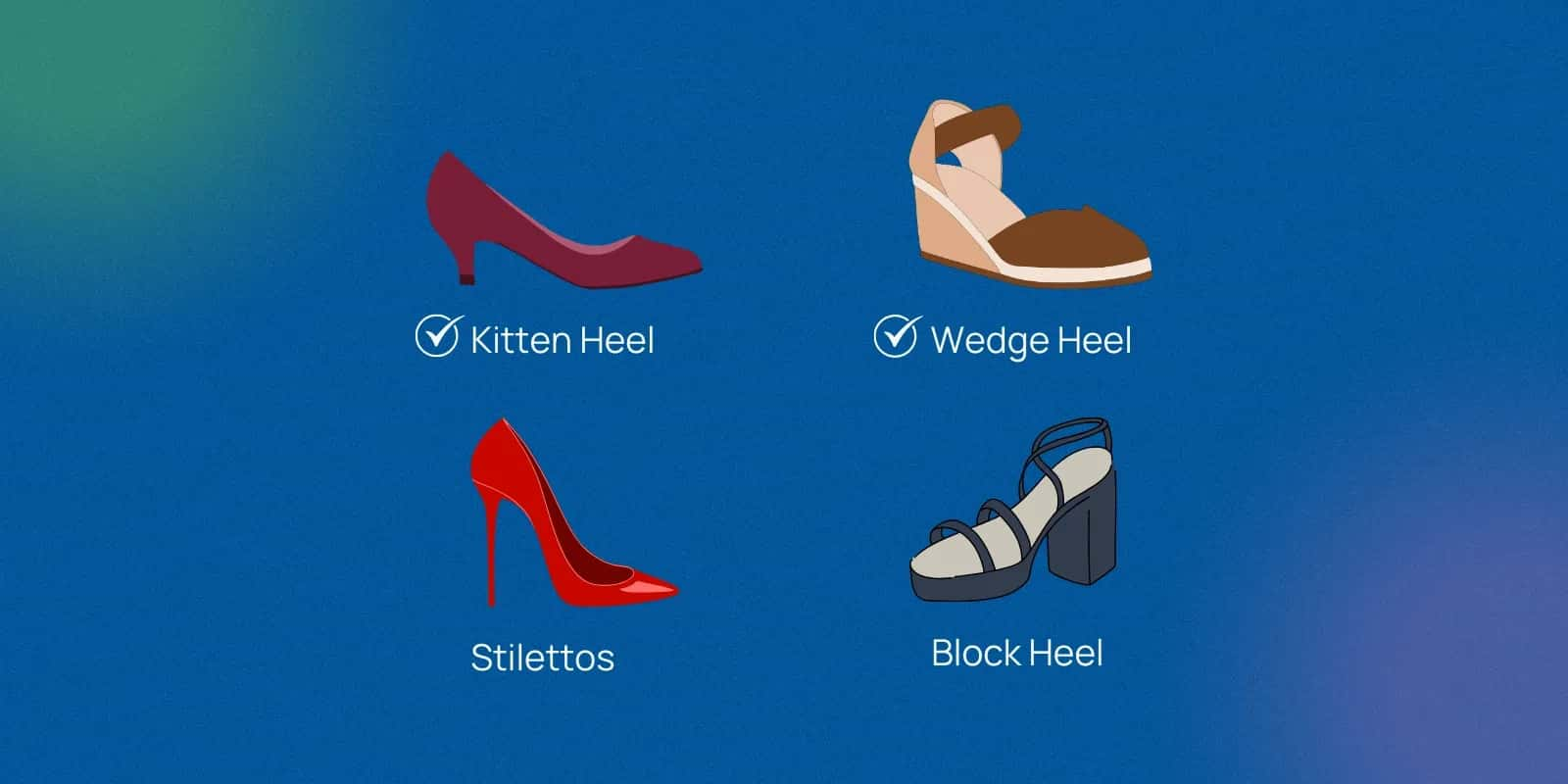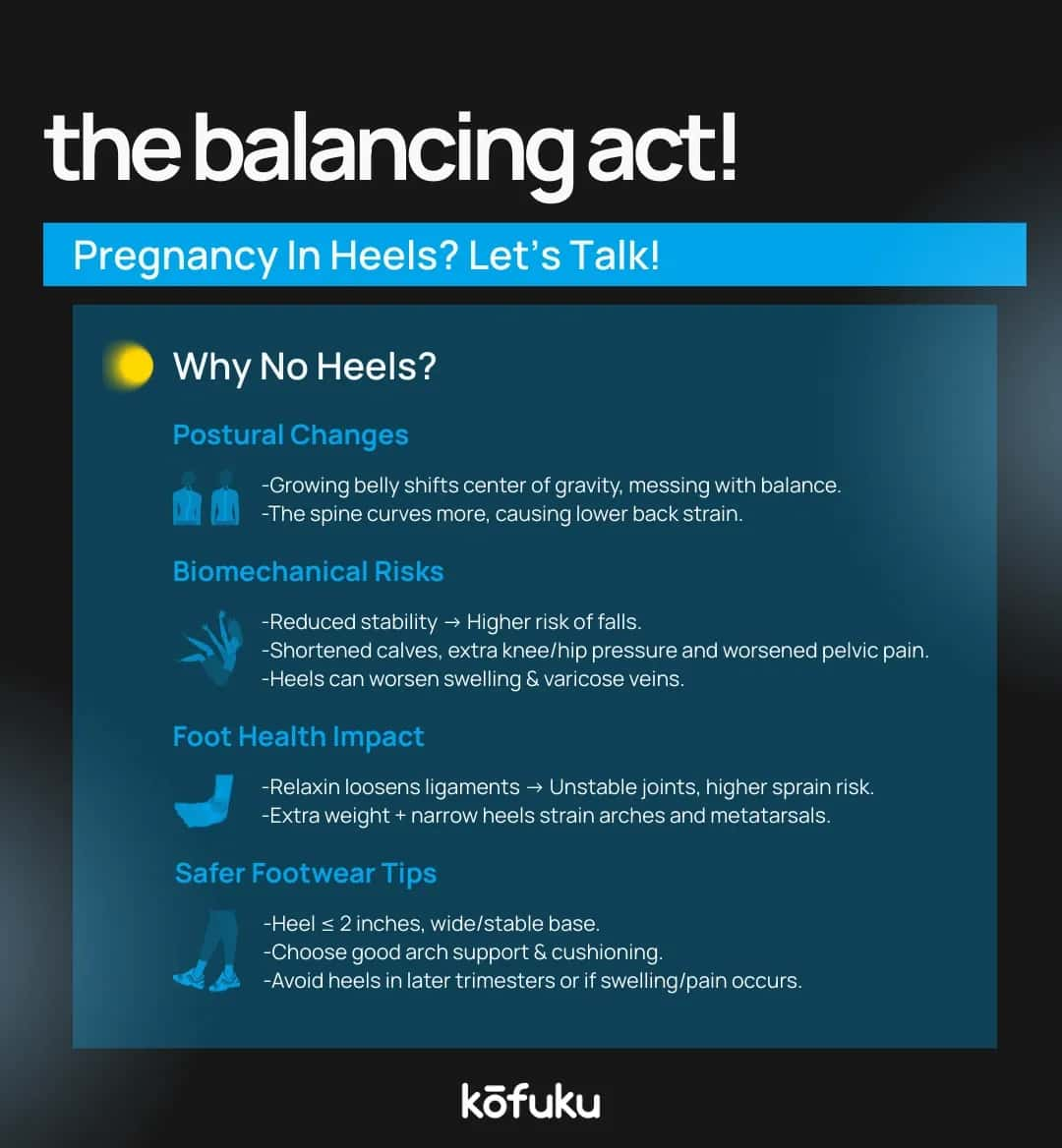Style vs Risk: Can You Wear Heels During Pregnancy?

Introduction
Pregnancy is a daunting but incredible journey that’s full of anticipation, excitement, and a few inconveniences as well. There are a lot of things that you’re advised not to do during pregnancy - avoid certain foods, avoid sleeping certain ways, and the list goes on.
A question that often comes up among soon-to-be-moms is: “Can I still wear heels while I’m pregnant?” If you love a stylish pair of stilettos, switching to flats for nine months can seem like a fashion sacrifice. But, is it really unsafe to wear heels while pregnant? Let’s unpack the truth behind it.
How Pregnancy Changes Your Body and Balance
Your body goes through a lot of changes during pregnancy. Not only do you see visible changes, but also changes in your body’s internal structure, balance, and flexibility. So, wearing the proper footwear, among other things, is now more important than ever!
Hormonal Changes and Joint Flexibility
During pregnancy, the body secretes a hormone called relaxin, which loosens your joints and ligaments in preparation for childbirth. This is extremely important for delivery, but it also makes your knees, ankles, and hips unstable and more prone to slips or sprains, and that’s in everyday footwear, so think about how dangerous it could be if you’re wearing heels.
Weight Gain and Shift in Centre of Gravity
As the baby grows inside you, your centre of gravity shifts farther away from the hip or ankle joint to the front, and the way you walk and balance yourself changes with it. This change puts extra pressure on your back and legs, and wearing heels adds to the destabilising nature of an already altered centre of gravity, causing back pain and issues with your posture.
Risks of Wearing Heels During Pregnancy
We’re not trying to demonise heels or stop you from wearing them; we just want you to know the risks associated with wearing heels during such a delicate time.
Increased Risk of Falls and Injury
Wearing stilettos or any other type of high heels increases your risk of tripping, rolling, or falling, which can be dangerous for you and your baby. A simple, low-impact fall could land you in a hospital and cause complications and injuries.
Impact on the Back and Posture
High heels cause your pelvis to shift forward and your lower back to arch further than it usually does. When we add pregnancy-related stress to your lower back, this may cause chronic discomfort or pain.
Swelling and Circulation Issues
Many pregnant women experience swelling in their feet and ankles. Heels can also limit circulation, worsen the swelling, and may even lead to the development of varicose veins.
Long-Term Problems for Your Feet
Wearing heels frequently during pregnancy can lead to long-term foot problems, such as flat feet, plantar fasciitis, or bunions, especially when your feet are already subjected to excess weight and hormonal changes.

When is it Okay to Wear Heels?
There are many downfalls when it comes to wearing heels during your pregnancy, but this does not mean heels are off-limits for the next nine months. It’s really about how and when you wear it.
Early Pregnancy
In trimester one, before any significant weight gain or balance issues set in, you can wear your favourite heels for brief periods, like at a wedding or any other function. Just don’t be on your feet for too long.
Low Heels vs. High Heels
If you want to wear heels during this period, then go for low heels (1–1.5 inches) with good ankle support. Avoid wearing pencil heels or stilettos; instead, opt for block heels or wedges for extra stability.
Occasional Use vs. Daily Habit
Wearing heels occasionally is very different from wearing heels every day to work. If you wear heels regularly, consider cutting back on their use and substitute them with supportive flats or orthopaedic shoes.
Expert Opinions: What Do Doctors and Physiotherapists Think?
Most doctors would agree that comfort and safety will far outweigh fashion, especially during pregnancy. If a woman wears high heels regularly, it will cause both their spine and lower limbs unnecessary stress during pregnancy. It is best to limit the use of high heels and opt for shoes that provide comfort and support.
According to physiotherapists everywhere, postural alignment is already challenged during pregnancy, and heels tend to tilt the pelvis forward, which can lead to muscle imbalances and potential sciatic pain. For women with pre-existing back issues, high heels will only complicate or worsen the symptoms.

Safer Footwear Options When You're Pregnant
Fortunately, maternity-friendly fashion has come a long way, and there are now many options that provide comfort and support without compromising on style.
Comfortable Flats and Sneakers
A good cushioned pair of flats or sneakers can provide arch support and stability. Look for shoes with non-slip soles and ensure they are big enough to accommodate swollen feet.
Orthopaedic Sandals
These are designed to reduce strain on your joints while still being trendy. They’re available in trendy designs and colours. So, you don't have to feel like you can’t wear stylish footwear when you’re pregnant.
Tips for Choosing Maternity-Friendly Footwear
Look for fasteners that allow the straps to be adjustable, accommodating swelling. Feel free to go up a size, as your feet might change due to swelling and other physiological changes. As for the material, go for breathable materials to avoid sweat and irritation.
Conclusion
Looking and feeling good is essential to many women, and they shouldn’t have to compromise on that during pregnancy. However, even though fashion is important, safety comes first.
Your favourite heels may help boost your confidence, but the dangers during pregnancy cannot be overlooked. And is it really worth putting your and your baby’s safety in danger for?
Focus on practical and smart footwear choices that accommodate your changing body rather than making things even more difficult for you. You can still look amazing in a cute pair of low wedges or trendy sneakers without putting yourself at risk. Pregnancy is a time to embrace your strength, and you can do it without any boost from your heels.

FAQs
Q. Is it harmful to wear heels during early pregnancy?
A. Wearing heels occasionally during the early stages of pregnancy is not particularly harmful, but wearing them every day can severely affect your back and joints.
Q. What type of footwear is recommended for pregnant women?
A. Pregnant women are advised to wear supportive flats, cushioned sneakers, and orthopaedic sandals that keep their feet comfy and accommodate swollen feet.
Q. Can wearing heels cause back pain during pregnancy?
A. Yes, wearing heels can affect your posture and place undue pressure on your lower back, which could lead to discomfort, pain, and even a fall.
Q. How do heels affect balance and posture in pregnancy?
A. Heels throw your weight forward, thus affecting your balance while straining your spine and joints.
Q. Are wedges or block heels safer alternatives during pregnancy?
A. The safest option during pregnancy is to avoid heels altogether. However, if you must wear heels, then block heels and wedges will provide more stability and are generally safer than stilettos.

Hard Sole vs Soft Sole Shoes: Which is Best for Your Feet?

Restless Leg Syndrome or Willis Ekbom Disease

Why Sitting Cross-Legged While Eating Can Boost Your Wellness

Pregnancy and Contraceptives: What You Should Know

Beyond the Bump: Why Diabetes in Pregnant Women Demands Your Attention Now


